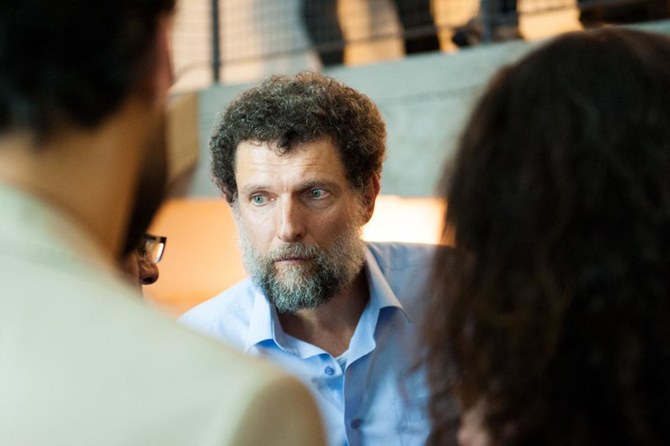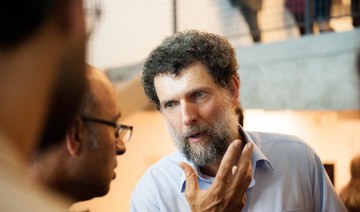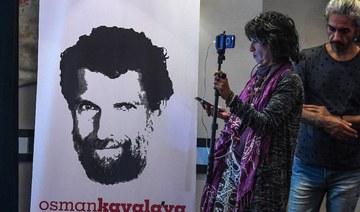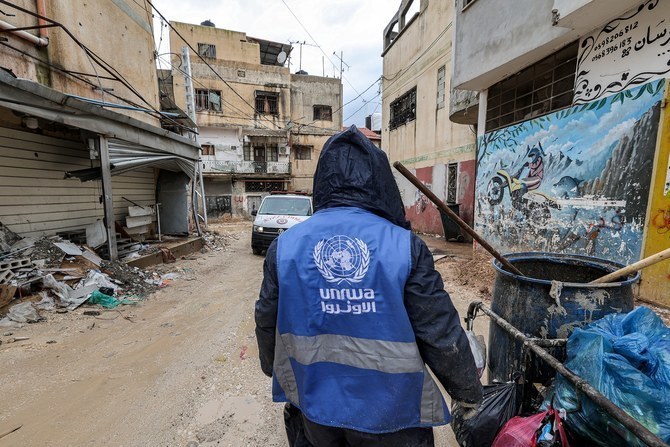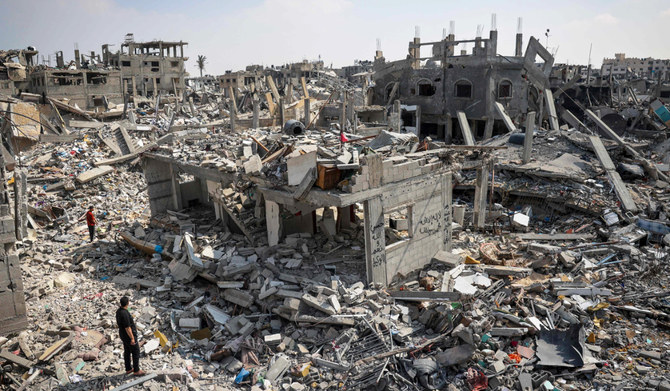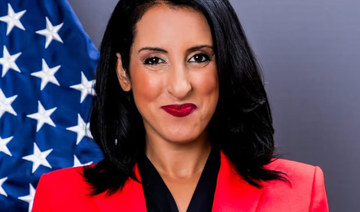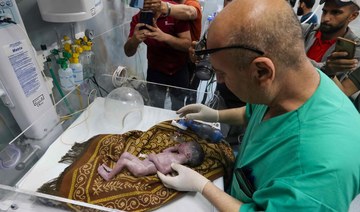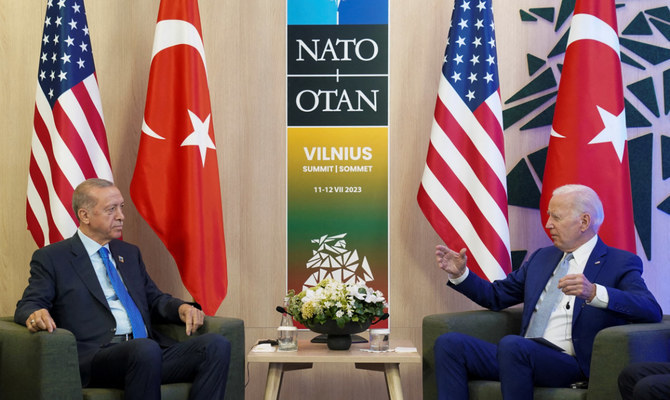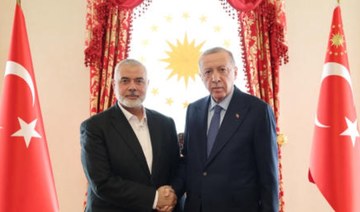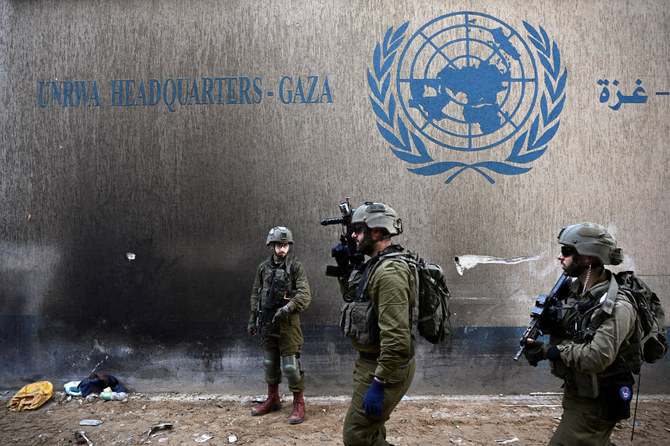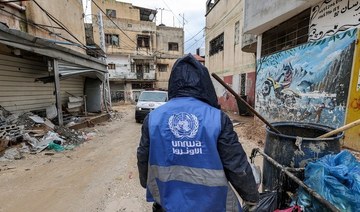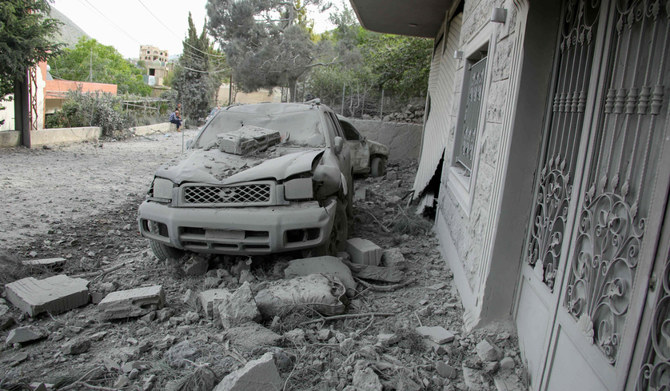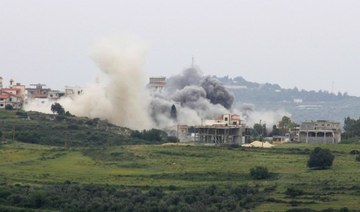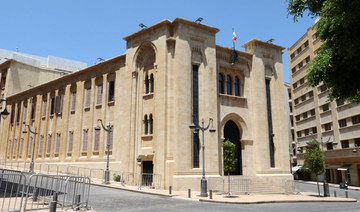ISTANBUL: A Turkish court on Monday sentenced leading intellectual and rights campaigner Osman Kavala to life in prison on hugely controversial coup plot charges that had already seen him locked up without a conviction for more than four years.
The panel of three penal court judges also jailed seven other defendants for 18 years each on charges of aiding the attempt to topple the government.
The ruling drew swift condemnation from some of Turkey’s main allies in the NATO defense alliance as well rights campaigners — several of whom emerged from the packed Istanbul courtroom in tears.
Germany said the 64-year-old must be “freed immediately” while two leading European parliamentarians who coordinate ties with Ankara said the “regrettable” ruling showed there was “little to no EU perspective for the current Turkey.”
The State Department was expected to react later Monday.
“Today, we have witnessed a travesty of justice of spectacular proportions,” said Amnesty International’s Europe director Nils Muiznieks.
Kavala’s attorneys vowed to appeal while his supporters pledged to stage a protest vigil outside the heavily policed courthouse on Tuesday.
The Paris-born philanthropist told the court by video link form his high-security prison near Istanbul that he viewed the entire process as a “judicial assassination.”
“These are conspiracy theories drafted on political and ideological grounds,” Kavala told the court moments before the sentence.
The three judges took less than hour to deliver the sentence in one of Turkey’s most high-profile trials in years.
The marathon hearing has been gnawing on Turkey’s strategic but tempestuous ties with its main Western allies since Kavala’s unexpected arrest in October 2017.
Kavala was then best known as a soft-spoken businessman who was spending part of his wealth to promote culture and projects aimed at reconciling Turkey and its arch-nemesis Armenia.
But President Recep Tayyip Erdogan portrayed him as a leftist agent of the Hungarian-born US billionaire George Soros who was accused of using foreign money to try and overthrow the state.
“We can never be together with people like Kavala,” Erdogan declared in 2020.
Tens of thousands of people ended up being jailed or stripped of their government jobs in the purges that followed the coup attempt.
But the seemingly arbitrary nature of the alternating charges filed against Kavala made him into a symbol for international rights groups — as well as Western governments — of Erdogan’s increasing authoritarian streak in the second decade of his rule.
Kavala was first charged with funding a wave of 2013 protests that some analysts view as the genesis of Erdogan’s more authoritarian posture in the latter half of his 20-year rule.
That count did not stick.
A court acquitted and released him in February 2020 — only for the police to arrest him before he had a chance to return home to his wife.
Another court then accused him of being involved in the failed but bloody 2016 coup attempt that unleashed a years-long crackdown in which tens of thousands were either jailed or stripped of their government jobs.
Kavala ended up being charged with both counts.
His treatment prompted the Council of Europe to launch rare disciplinary proceedings that could ultimately see Turkey’s membership suspended in the continent’s main human rights grouping.
Monday’s ruling “will surely bring about consequences in the infringement proceedings ongoing at the Council of Europe,” the European parliamentarians in charge of Turkish affairs said.
Yet the case’s importance to Turkey’s broader diplomatic standing has been somewhat muted by Russia’s two-month war in Ukraine.
Erdogan has been leveraging his relatively good ties with both Moscow and Kyiv to try and mediate an end to the war.
His efforts have already brought about a marked improvement in Ankara’s relations with Washington that could soon see Turkey supplied with US military jets.
Monday’s hearing was held in Istanbul at the same time as UN Secretary General Antonio Guterres met Erdogan in Ankara before traveling to Moscow and Kyiv later in the week.
“The Secretary-General expressed his support for Turkey’s on-going diplomatic efforts in relation to the war in Ukraine,” Guterres’s office said.
Erdogan did not mention Kavala in a national television address that began moments after the verdict.
His office instead said the Turkish leader planned to discuss Ukraine with Russia President Vladimir Putin on Tuesday.




